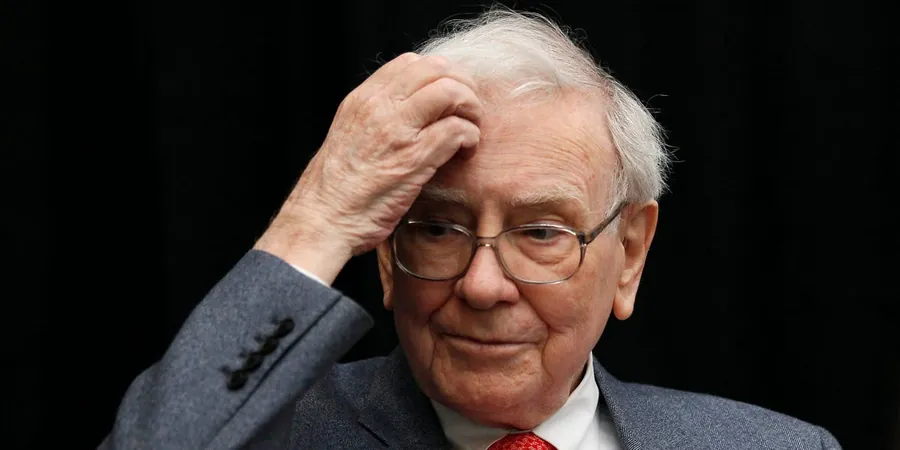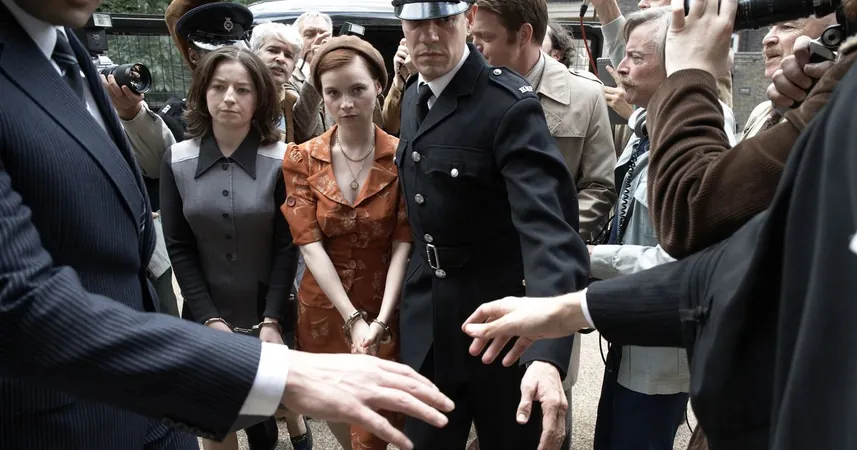
Warren Buffett's Monumental Cash Pile: Why He's Hoarding Over $300 Billion Like a Modern-Day Noah
2024-11-13
Author: Jia
Warren Buffett's Cash Reserve
Warren Buffett, the legendary investor and CEO of Berkshire Hathaway, has amassed an unprecedented cash reserve of over $300 billion—a record that has captured the attention of the finance world. This staggering amount reflects not just the company’s liquid assets, including cash and Treasury bills, but also signals a significant shift in investment strategy.
Investment Strategy Shifts
Buffett’s approach has recently included a halt on stock buybacks and a reduction in key investments, notably selling off portions of his stakes in tech giants like Apple and Bank of America. At 94 years old, Buffett appears to be navigating a dry spell for bargains in the stock market, raising eyebrows about his future plans for Berkshire Hathaway.
Cash Pile Growth
Berkshire Hathaway’s cash hoard has increased by nearly three-fold over the past two years, soaring to a record $325 billion as of September 30. This massive sum now represents a staggering 27% of Berkshire's total assets, a larger proportion than in many years past. Interestingly, this cash pile exceeds the company’s entire market valuation just over a decade ago.
Market Dynamics and Investment Opportunities
The reason behind this cash accumulation seems clear: a lack of attractive investment opportunities. As a value investor, Buffett has always prided himself on locating undervalued assets, but recent market dynamics have made this task increasingly difficult. Lawrence Cunningham, a corporate governance expert, speculates that the cash build-up is less about prepping for a speculative doomsday scenario—and more about the scarcity of favorable investment chances.
Valuation Concerns
Market analysts are echoing these sentiments, pointing out that U.S. stock valuations have reached astonishing heights. As of recent reports, the total value of the U.S. stock market hit a staggering $58.13 trillion, a striking 198.1% of the U.S. GDP. Notably, this figure is closely associated with Buffett’s own warning indicators from past market cycles, particularly during the infamous dot-com bubble. Today’s market dynamics show a level of overvaluation that makes seasoned investors wary.
Share Repurchase and Selling Trends
Adding to this cautious stance, Buffett's decision to refrain from repurchasing any Berkshire shares recently follows a pattern of consistent selling. In the first nine months of 2023, Berkshire sold off stashes of stock worth $133 billion—more than the entirety of Citigroup's market cap—while only purchasing around $6 billion worth.
Strategic Portfolio Recalibration
Notably, Buffett trimmed his stake in Apple—his most prized possession—by a significant 60%. Similarly, he reduced his holdings in Bank of America by 23%. This strategic shift suggests that Buffett is not just hoarding cash but is also meticulously recalibrating his portfolio.
Future Speculations
As speculation swirls, some analysts believe this substantial cash reserve could serve multiple purposes. Some posit that Buffett is preparing for potential increases in capital gains taxes, while others suggest he is strategically crystallizing profits on his winning bets to ensure a smooth transition for his eventual successor, Greg Abel.
Higher Earnings from Treasury Bills
Furthermore, with interest rates significantly higher than they were three years ago, Buffett is earning more on his Treasury bills than in times gone by. It’s estimated that Berkshire’s holdings in Treasury securities amount to $288 billion, which surpasses even the Federal Reserve.
Conclusion
While some believe Buffett is merely waiting for the right moment to reinvest in undervalued stocks after the current market peaks out, others contend he may sense trouble brewing on the economic horizon—a perspective aligned with his historical pattern of market moves. In summary, Warren Buffett's record-breaking cash reserves reflect a mix of cautious optimism and strategic foresight. As he navigates the financial landscape, the world watches to see if this grand strategy will play out in the face of potential market corrections or opportunities for investment.




 Brasil (PT)
Brasil (PT)
 Canada (EN)
Canada (EN)
 Chile (ES)
Chile (ES)
 España (ES)
España (ES)
 France (FR)
France (FR)
 Hong Kong (EN)
Hong Kong (EN)
 Italia (IT)
Italia (IT)
 日本 (JA)
日本 (JA)
 Magyarország (HU)
Magyarország (HU)
 Norge (NO)
Norge (NO)
 Polska (PL)
Polska (PL)
 Schweiz (DE)
Schweiz (DE)
 Singapore (EN)
Singapore (EN)
 Sverige (SV)
Sverige (SV)
 Suomi (FI)
Suomi (FI)
 Türkiye (TR)
Türkiye (TR)